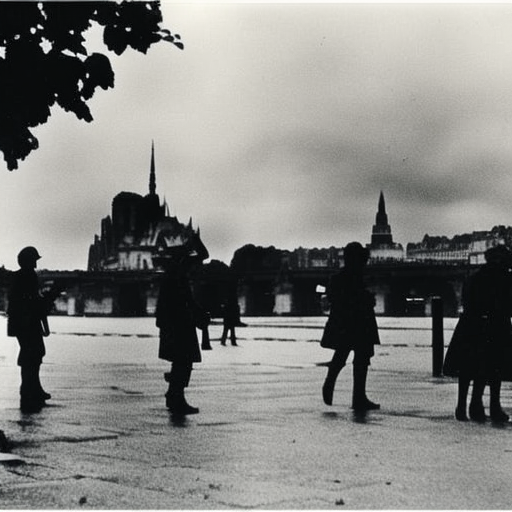Liberation of France: A Turning Point in World War II
The Liberation of France was a significant event during World War II that marked a turning point in the conflict. It refers to the period from 1944 to 1945 when Allied forces, primarily led by the United States, the United Kingdom, and Canada, liberated France from German occupation. This liberation campaign was a crucial step towards the ultimate defeat of Nazi Germany and the restoration of French sovereignty.
The Invasion of Normandy: Operation Overlord
The liberation of France began with the Allied invasion of Normandy, codenamed Operation Overlord, on June 6, 1944. This massive amphibious assault involved over 150,000 troops landing on the beaches of Normandy, with the aim of establishing a foothold in Western Europe. Despite initial setbacks and heavy casualties, the Allies managed to secure the beachheads and push inland.
The Battle of Normandy
The Battle of Normandy ensued as the Allies fought to expand their foothold and push the German forces back. The battle was characterized by intense fighting, as both sides suffered heavy losses. The Allies faced formidable German defenses, including the Atlantic Wall, a series of fortifications along the French coast. However, the Allies’ superior numbers, air support, and logistical capabilities eventually tipped the balance in their favor.
The Liberation of Paris
One of the most iconic moments of the liberation campaign was the liberation of Paris on August 25, 1944. After weeks of intense fighting, French resistance fighters and the Free French Forces, led by General Charles de Gaulle, rose up against the German occupiers. Supported by the advancing Allied forces, they successfully liberated the city. The liberation of Paris was a symbol of hope and a turning point in the war, as it demonstrated that the German grip on France was weakening.
The Push Towards Germany
Following the liberation of Paris, the Allies continued their advance towards Germany. They faced fierce resistance from German forces, who sought to delay the Allied advance and inflict as many casualties as possible. The liberation campaign involved a series of major battles, including the Battle of the Bulge and the Battle of the Rhine. Despite these challenges, the Allies steadily pushed forward, liberating towns and cities along the way.
The Surrender of Germany
By early 1945, the Allied forces had reached the German border. The liberation campaign had severely weakened the German military, and the end of the war was in sight. On May 7, 1945, Germany surrendered unconditionally, bringing an end to the war in Europe. The liberation of France played a crucial role in this outcome, as it had disrupted German supply lines, weakened their defenses, and boosted Allied morale.
The Legacy of the Liberation of France
The liberation of France had a profound impact on the course of World War II and the subsequent history of Europe. It marked a turning point in the war, as the Allies gained a foothold in Western Europe and began their advance towards Germany. The liberation campaign also boosted the morale of the French people and helped restore their sense of national pride. Furthermore, it paved the way for the establishment of a democratic and independent France after the war.
In conclusion, the liberation of France was a critical event during World War II that marked a turning point in the conflict. The Allied invasion of Normandy and subsequent battles paved the way for the liberation of Paris and the eventual defeat of Nazi Germany. The campaign had a profound impact on the course of the war and the subsequent history of Europe, restoring French sovereignty and contributing to the establishment of a democratic France.












